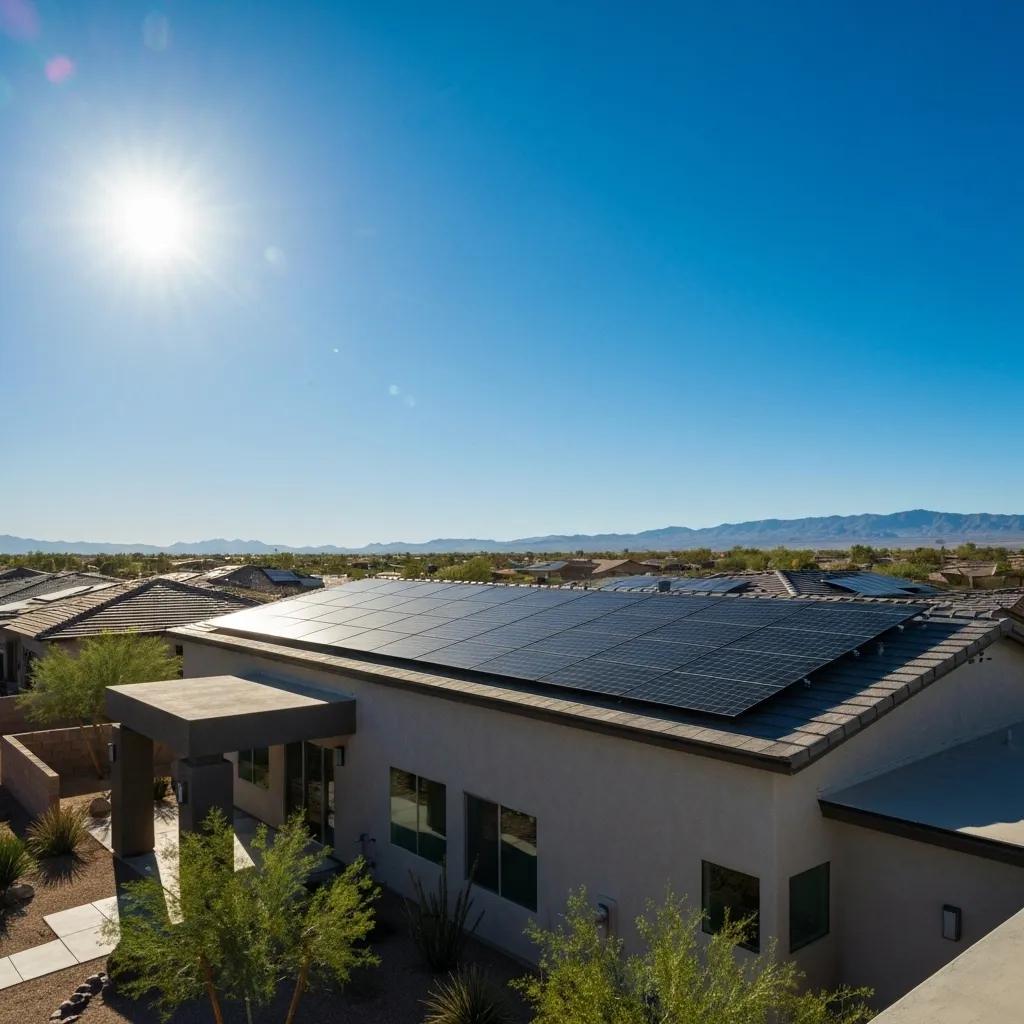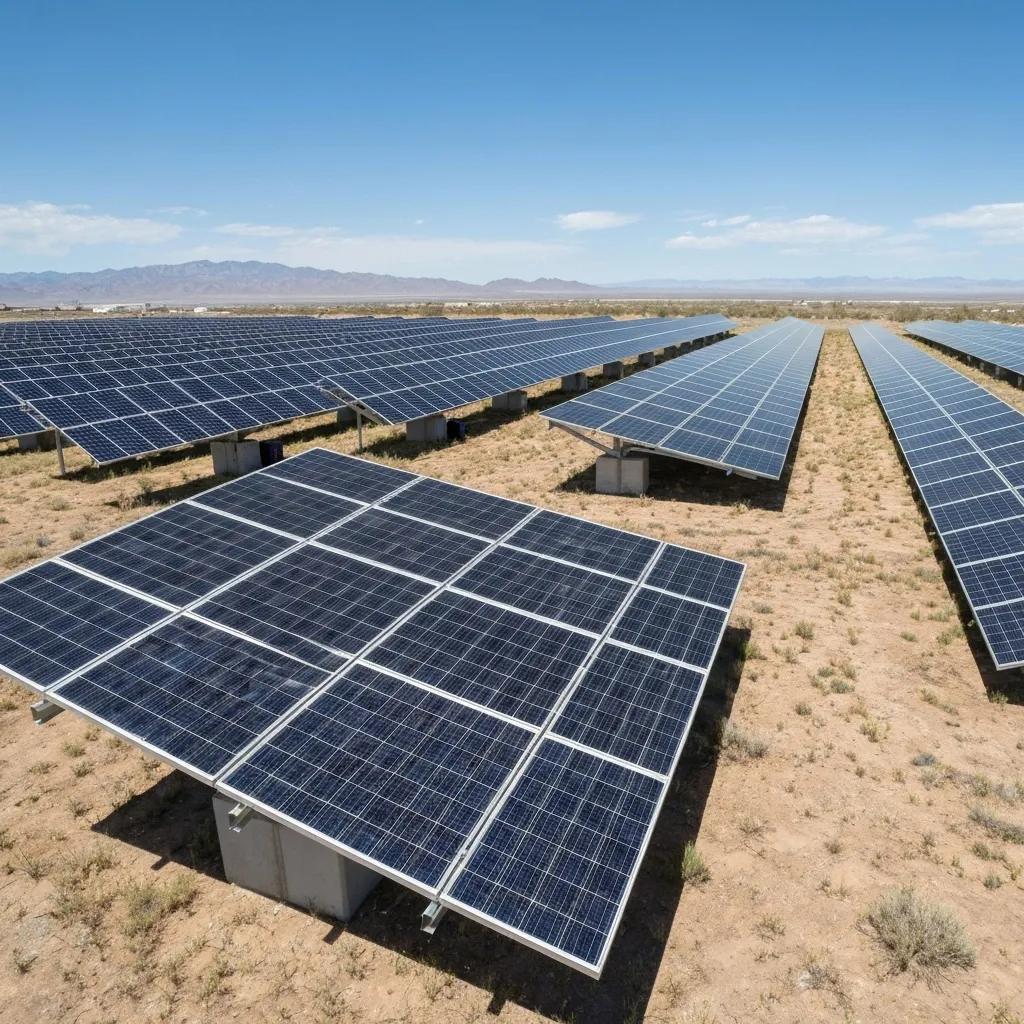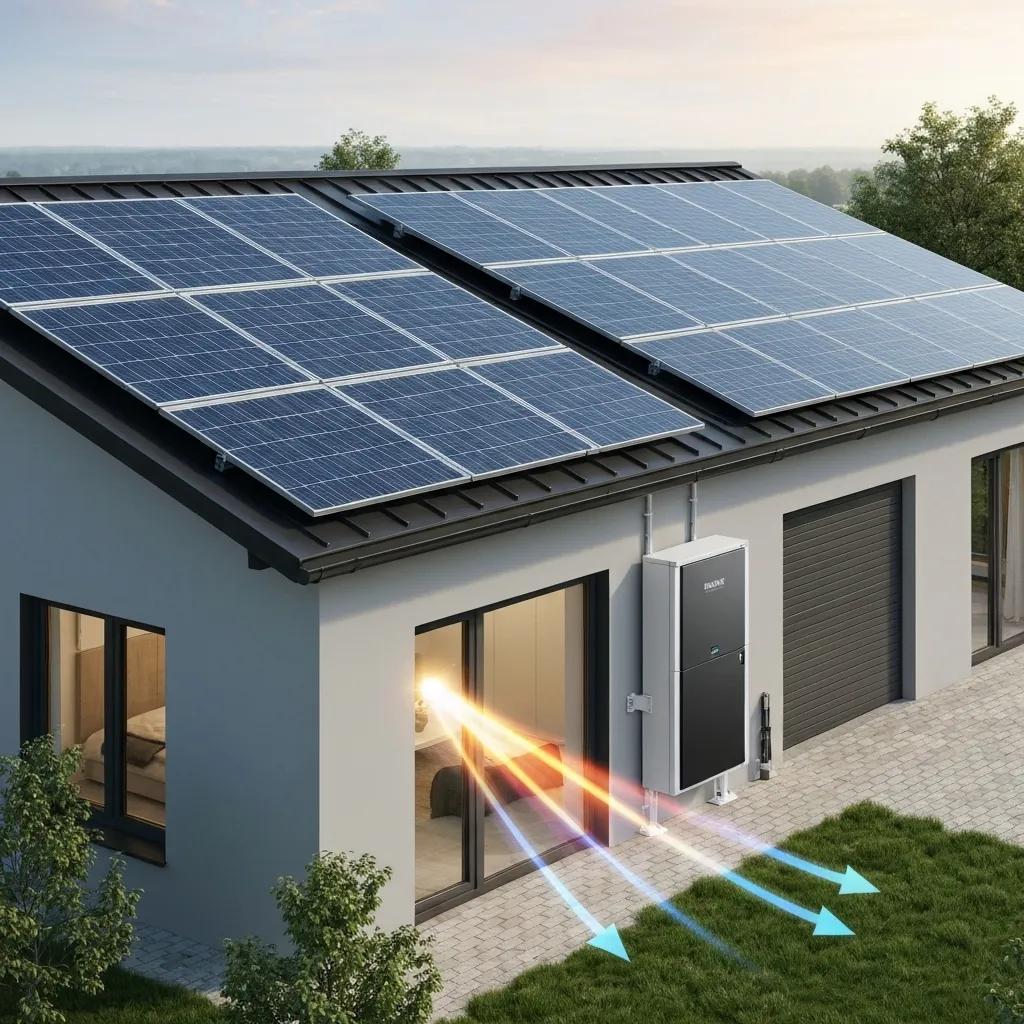
Solar Panel Installation in Las Vegas and Nevada: Costs, Options, and Benefits
Solar power systems tap into the abundant sunshine of the Southwest to significantly lower energy bills, increase property value, and reduce your carbon footprint, whether you’re a homeowner or a business owner. In Las Vegas and across Nevada, where the average cost for solar installation typically falls between $2.17 and $2.85 per watt, and where federal and state incentives can cover up to 30 percent of your installation expenses, making the switch to solar offers undeniable financial and environmental advantages.
Solar Energy Costs and Benefits in Nevada
This study delves into the costs and advantages of solar energy throughout Nevada, covering installation expenses, available incentives, and calculations for return on investment. It highlights the financial and environmental upsides of solar power for both homes and commercial properties.
U.S. Department of Energy, “Solar Energy in Nevada” (2024)
This reference backs up the article’s points regarding solar panel pricing, available incentives, and the overall benefits of solar energy in Nevada.
This guide will walk you through installation costs, explore rooftop and ground-mounted system choices, detail financing and incentive programs, outline the Vegas Solar, LLC installation process, showcase our local expertise and dedicated customer support, and discuss battery storage solutions to maximize your savings and energy independence.
Discover in-depth information on:
- Realistic cost breakdowns and ROI calculations
- Top residential rooftop systems and recommended brands
- Commercial ground-mounted solutions and tax benefits
- Financing models, net metering, and incentive programs
- Step-by-step installation journey with Vegas Solar, LLC
- Unique advantages of our decade-long Nevada expertise
- Integration of solar battery storage for backup power
How Much Does Solar Panel Installation Cost in Las Vegas?
A typical residential solar setup in Las Vegas typically costs between $10,000 and $15,000 after incentives, averaging $2.17–$2.85 per watt. This initial investment leads to substantial reductions in your electricity bills, making solar installation one of the quickest ways to lower your long-term energy expenses in Nevada’s sunny climate.
What Factors Influence Residential Solar Installation Costs?
The cost of residential solar installations is influenced by several factors, including the size of the system, the efficiency of the panels, the complexity of your roof, the type of inverter chosen, and local labor rates. Opting for higher-efficiency panels and more advanced inverters will increase the initial investment but result in greater energy generation over time. For instance, installing a 6 kW system on a complex tile roof might add 10–15 percent to installation labor costs compared to mounting on a simple asphalt shingle roof.
Ongoing advancements in panel technology and more streamlined permitting processes are helping to moderate costs. This allows homeowners to carefully consider the benefits of premium equipment against their budget constraints before deciding on a system size.
How Do Rooftop and Ground Mounted Systems Differ in Price?
Rooftop installations generally cost 5–10 percent less per watt than ground-mounted arrays because they require less extensive site preparation. Ground-mounted systems involve additional expenses for foundations, trenching, and specialized racking systems.
Rooftop systems make excellent use of available roof space and minimize site work, while ground mounts offer the flexibility to be positioned for maximum energy output, setting the stage for comparing energy yields and financing options.
What Savings Can You Expect from Federal and Nevada Solar Incentives?
The Federal Investment Tax Credit (ITC) allows you to claim 30 percent of eligible solar installation costs through 2032. Nevada’s net metering policy credits excess energy sent back to the grid at 75 percent of the retail rate for systems up to 25 kW. When combined, these incentives can reduce your net costs by 35 percent or more, significantly accelerating your return on investment.
This strong incentive structure encourages homeowners to adopt solar energy sooner, leading to greater long-term savings and supporting Nevada’s commitment to renewable energy goals.
How to Calculate Your Return on Investment for Solar Panels?
For example, a system costing $12,000 after incentives that saves $1,200 annually offers a 10 percent annual ROI, with a payback period of eight to ten years.
- Estimate your annual kWh production (e.g., 5 kW × 1,800 hours of peak sun = 9,000 kWh).
- Multiply by your current electricity rate (e.g., 9,000 kWh × $0.13 = $1,170 in annual savings).
- Subtract any minimal maintenance costs (quality panels under warranty typically require very little).
Accurate ROI projections empower homeowners to select system sizes and financing options that best align with their long-term financial objectives.
What Are the Best Solar Panel Installation Options for Las Vegas Homes?
Residential solar solutions range from compact rooftop arrays to advanced building-integrated photovoltaic (BIPV) systems. For most homes, rooftop installations offer the advantage of minimal site disruption and direct integration with existing electrical systems.
What Are the Benefits of Rooftop Solar Installation for Homes?
Rooftop solar effectively utilizes unused roof space to generate clean energy directly at your home, reducing your dependence on grid electricity and increasing your property’s value. Panels installed at the optimal tilt and orientation can capture the maximum amount of sunlight, leading to consistent monthly savings and providing a hedge against rising utility rates.
Efficient rooftop systems often qualify for expedited permitting in many Las Vegas areas, which can shorten the overall project timeline.
Which Solar Panel Brands and Technologies Are Recommended?
Leading brands like LG, Panasonic, and SolarEdge are known for optimizing energy production through high-efficiency monocrystalline cells and advanced smart inverters. These panels deliver superior performance, even in the high heat and dusty conditions common in Southern Nevada.
By comparing panel specifications and manufacturer warranties, homeowners can select systems that best meet their performance expectations and budget.
How Does the Installation Process Work for Residential Rooftop Solar?
The installation process for residential rooftop solar typically involves four key phases:
- Site Assessment – We’ll inspect your roof, analyze potential shading, and review your energy usage.
- Design & Engineering – We create a custom system layout, develop electrical schematics, and prepare permit applications.
- Installation – This includes mounting the racking, installing the panels, connecting the inverter, and completing the wiring.
- Inspection & Activation – We coordinate with the utility for interconnection and ensure all final inspections are passed before activating your system.
This structured approach ensures every step adheres to local regulations and safety standards, setting the foundation for reliable energy production.
What Maintenance Is Required for Rooftop Solar Panels?
Solar panels require very little maintenance. An annual cleaning to remove dust and debris, along with a visual inspection, is usually sufficient. Monitoring inverter performance and conducting occasional system checks will help maintain optimal efficiency and identify any potential issues early on.
Proactive maintenance, especially in the first year, helps ensure full warranty coverage and consistent energy generation for decades to come.
How Do Ground Mounted Solar Panels Work for Nevada Businesses?
Ground-mounted solar arrays are installed on flat or sloped terrain, allowing for adjustable tilt and orientation to maximize sun exposure. This setup is ideal for commercial and industrial properties with available land and higher energy demands.
What Are the Advantages of Ground Mounted Solar Systems?

Ground-mounted systems offer easier access for cleaning, maintenance, and performance monitoring. The use of adjustable racking can optimize seasonal sun capture, potentially increasing annual energy output by up to 20 percent compared to fixed rooftop arrays.
By designing arrays that precisely match a business’s energy consumption patterns, companies can effectively hedge against rising energy costs and visibly demonstrate their commitment to sustainability.
How Is Ground Mounted Solar Installation Different from Rooftop?
Ground mounts require more extensive initial site work, including the installation of concrete piers or driven piles, electrical trenching, and larger racking structures. However, this investment can lead to greater flexibility for future system expansions and optimal positioning away from any potential roof-related shading.
Businesses typically evaluate land costs, site grading requirements, and engineering needs when deciding between ground-mounted and rooftop solar solutions.
What Financing and Tax Incentives Are Available for Commercial Solar?
Commercial entities can take advantage of the 30 percent federal ITC, accelerated depreciation through MACRS, exemptions from property taxes, and various utility rebates. When combined, these incentives can cover up to 50 percent of the project cost, significantly improving project feasibility.
Working with a solar contractor experienced in commercial incentive applications can streamline the funding process and maximize tax benefits.
How Can Businesses Maximize Energy Savings with Ground Mounted Solar?
By integrating solar generation with demand-side management strategies—such as energy storage, aligning with time-of-use electricity rates, and implementing energy efficiency upgrades—businesses can optimize their self-consumption of solar power and reduce their reliance on grid electricity during peak demand periods.
Smart energy management systems complement ground-mounted solar installations to deliver substantial operational savings and create more predictable utility budgets.
What Financing Options and Incentives Support Solar Installation in Nevada?
Nevada offers a comprehensive suite of incentives, including federal tax credits, state rebates, net metering policies, and local utility programs. These programs, coupled with various private financing options, make solar energy accessible for both homeowners and businesses.
How Does the Federal Solar Tax Credit (ITC) Reduce Installation Costs?
The ITC allows you to claim 30 percent of your solar installation costs as a tax credit against your federal income tax liability. This direct credit effectively reduces the net cost of your system by nearly one-third and is currently set to remain available through 2032.
Combining the ITC with state-specific programs can significantly accelerate your return on investment and make larger system sizes financially attainable.
What State and Local Solar Incentives Are Available in Nevada?
Nevada’s net metering program provides credits for excess energy generation at 75 percent of the retail rate. Major local utilities, such as NV Energy and Valley Electric, also offer performance-based incentives and rebates for qualifying systems, which can shorten payback periods by up to two years.
Staying informed about the latest local incentive updates is crucial for project planners aiming to secure maximum savings.
What Financing Models Does Vegas Solar, LLC Offer?
Vegas Solar, LLC provides flexible financing options, including solar loans, leases, and Power Purchase Agreements (PPAs), often with zero money down, allowing you to start saving immediately without upfront capital. Our loan programs typically feature competitive interest rates and repayment terms of up to 20 years, aligning your monthly payments with your energy savings.
For personalized financing advice, please visit our contact page to explore options tailored to your budget and financial goals.
How Can Net Metering Benefit Your Solar Investment?
Net metering allows you to receive credits for any excess solar energy your system sends back to the grid, which can then be used to offset your electricity consumption during times when your panels aren’t generating power, such as at night. Over the course of a billing cycle, this energy exchange can potentially eliminate your electricity bill, depending on your system size and energy usage patterns.
Implementing effective net metering strategies enhances the overall value of your solar investment and contributes to long-term reductions in your energy expenses.
What Is the Step-by-Step Solar Panel Installation Process with Vegas Solar, LLC?
At Vegas Solar, LLC, our proven installation process combines deep local expertise with clear, consistent communication, ensuring a seamless transition to solar energy for your home or business.
How Does the Free Solar Consultation and Energy Analysis Work?
During your complimentary consultation, our engineers will conduct a thorough assessment of your roof or property, review your past electricity bills, and generate detailed energy production projections. This comprehensive analysis helps us determine the optimal system size and estimate your payback period, guiding our design decisions with data-driven accuracy.
To schedule your free assessment, please visit our contact page or give us a call directly.
What Are the Key Steps from Site Assessment to System Activation?
- Site Assessment – We conduct an on-site inspection, perform a shade study, and evaluate your roof’s structural integrity.
- Design & Permit – We create a customized system layout, prepare engineering drawings, and submit all necessary permit applications.
- Installation – This phase includes installing the racking, mounting the solar panels, wiring the inverters, and completing the electrical tie-in.
- Inspection & Interconnection – We coordinate with the Authority Having Jurisdiction (AHJ) for final inspection and secure utility approval for system activation.
How Does Vegas Solar Handle Permitting and Inspection?
Our dedicated in-house permitting team manages all necessary documentation, liaises with local building departments, and handles the utility interconnection approval process. This comprehensive service streamlines project timelines and minimizes administrative tasks for our clients.
Our direct communication with inspectors and utility companies ensures efficient sign-offs and timely project completion.
What Support and Maintenance Services Are Provided Post-Installation?
Vegas Solar offers ongoing system monitoring, annual performance checks, inverter diagnostics, and prompt warranty service for all panels and equipment. Our proactive maintenance program is designed to preserve peak system performance and extend the lifespan of your solar investment.
Our continued support reinforces customer confidence and maximizes the lifetime energy yield from your system.
Why Choose Vegas Solar, LLC for Your Solar Panel Installation in Las Vegas?
With over a decade of dedicated experience in the Las Vegas area and more than 30 years of combined industry expertise, Vegas Solar, LLC is committed to delivering reliable solar solutions, utilizing premium equipment, and providing unparalleled customer service.
What Local Experience and Expertise Does Vegas Solar Bring?
Operating in Las Vegas since 2010, our team possesses an in-depth understanding of regional permitting processes, how the local climate affects panel performance, and the specific practices of local utility companies. This extensive local knowledge streamlines project execution and enhances the long-term durability of your system.
Our accreditation with the Better Business Bureau (BBB) highlights our commitment to transparency and integrity—you can learn more by visiting our BBB profile.
How Does Vegas Solar Ensure Quality and Customer Satisfaction?
We exclusively use name-brand solar panels and inverters from leading manufacturers, provide matched performance warranties, and maintain clear, consistent project timelines. Real-time system monitoring and dedicated customer liaisons ensure that any concerns are addressed promptly and effectively.
Our consistent five-star customer reviews are a testament to our dedication to fulfilling our promises and consistently exceeding expectations.
What Do Customers Say About Vegas Solar’s Services?
Clients frequently commend our responsive communication, the professionalism of our installation teams, and the clarity of our financial modeling. Testimonials from both residential and commercial customers consistently highlight significant energy savings, increased property values, and exceptional post-installation support.
These endorsements solidify our reputation as a trusted and reliable solar partner throughout Southern Nevada.
How Does Vegas Solar Support Both Residential and Commercial Clients?
Whether it’s a single-family rooftop system or a multi-megawatt ground-mounted array, our team is equipped to scale solutions to meet a wide range of energy needs. We customize project plans, financing structures, and operations and maintenance (O&M) services for homes, businesses, agricultural operations, and utility-scale projects.
This versatility allows us to serve every segment of Nevada’s growing solar market.
How Can Solar Battery Storage Enhance Your Solar Panel System?

Integrating battery storage with your photovoltaic (PV) array enables 24/7 access to your solar energy, provides crucial emergency backup power, and allows for optimized rate arbitrage, all of which significantly enhance your self-consumption and overall energy resilience.
What Are the Benefits of Integrating Solar Battery Storage?
Battery storage captures excess solar energy generated during the day for use during peak demand periods or in the event of a power outage. This increased energy independence reduces your reliance on the grid, helps you avoid costly time-of-use charges, and ensures critical backup power during disruptions.
Homeowners gain invaluable peace of mind and a consistent electricity supply, even after the sun sets.
How Does Battery Storage Work with Rooftop and Ground Mounted Systems?
In both rooftop and ground-mounted configurations, a specialized battery inverter manages the flow of energy between your solar panels, the battery storage system, and your home’s or business’s electrical loads. Intelligent software directs surplus power to the batteries, manages discharges during peak rate periods, and maintains grid stability through smooth power regulation.
This seamless integration maximizes the overall efficiency and financial benefits of your solar energy system.
What Are the Costs and Financing Options for Solar Batteries?
Solar battery storage systems typically range from $7,000 to $15,000 before incentives, depending on the battery’s capacity and chemistry. Vegas Solar, LLC offers bundled financing options that include solar installations, allowing for extended loan terms and leveraging the ITC to reduce your out-of-pocket expenses.
Flexible payment plans and leasing models make advanced battery backup solutions accessible alongside your solar panel installation.
How Can Battery Storage Improve Energy Savings in Las Vegas?
By shifting your electricity consumption to stored solar energy during peak-rate hours, you can achieve up to an additional 30 percent reduction in your utility bills. Furthermore, having backup power during outages can prevent costly business downtime and safeguard essential home systems.
This layered approach to resilience and cost control highlights the comprehensive value of a combined solar-plus-storage solution.
By harnessing solar energy through premier rooftop or ground-mounted installations, benefiting from flexible financing options, and considering optional battery storage, Nevada homeowners and businesses are perfectly positioned to achieve lasting energy savings and embrace clean power.
Contact Vegas Solar, LLC today to schedule your complimentary consultation and embark on your solar energy journey.
